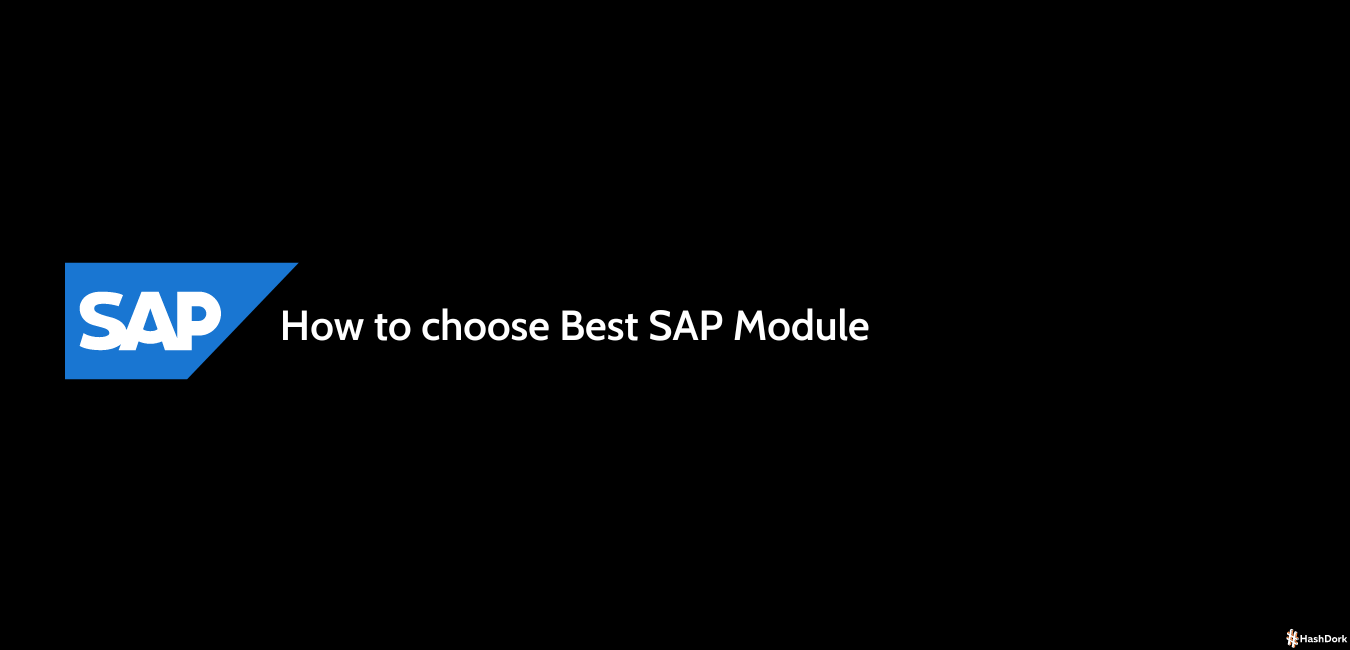Table of Contents[Hide][Show]
- What are SAP Modules?
Popular SAP Modules+−
- 1. SAP FI (Financial Accounting)
- 2. SAP SCM (SAP Supply Chain Management)
- 3. SAP ABAP (Advanced Business Application Programming)
- 4. SAP CRM (Customer Relationship Management)
- 5. SAP ERP (Enterprise Resource Planning)
- 6. SAP PP (Production Planning)
- 7. SAP SD (Sales and Distribution)
- 8. SAP PLM (Product Lifecycle Management)
- 8. SAP HR (Human Resources)
- 9. SAP EHS (Environmental, Health, Safety)
- 10. SAP BW (Business Intelligence)
- Conclusion
SAP is a world-leading provider of enterprise applications and related services. Over the years, it has developed different modules that businesses can use to improve their operations.
We will start with the most basic modules and go from there. So, if you are interested in learning more about SAP modules and what they can do for your business, keep reading!
What are SAP Modules?
SAP modules are software programs designed to perform specific business tasks. The modules interact with each other and share data between them. For example, the Sales and Distribution (SD) module handles sales orders and customer invoices. It also interacts with the Financial Accounting (FI) module to post customer payments.
SAP modules are divided into different categories, such as business applications, technology platforms, and database and analytics. Business applications are the most commonly used modules, and they cover a wide range of business functions, such as finance, human resources, and manufacturing.
Technology platforms provide the foundation for business applications and include modules like NetWeaver and HANA. Database and analytics modules help you store and analyze data.
SAP modules are developed in a variety of programming languages, including ABAP, Java, and C++. ABAP is the most commonly used language for SAP modules. It is a proprietary language developed by SAP and is not compatible with other programming languages. Java and C++ are standard programming languages that can be used to develop SAP modules.
There are over 25 modules in the SAP software suite. Each module is designed to meet specific business needs.

Popular SAP Modules
The following are some of the most popular SAP modules:
1. SAP FI (Financial Accounting)
This module is essential to all SAP customers who sell to other companies or need to generate financial reports. The SAP FI module handles all the tasks necessary to track A-Z’s financial transactions.
The module also has capabilities to prepare financial statements, manage accounting journals, track income taxes, generate sales invoices and purchase orders, track cash, etc. This module provides information for every type of transaction that a company makes and tracks whether it’s an expense, revenue, or profit.
The financial data is stored in separate accounts called entities. Each account is further broken down into sub-accounts to display all the relevant transaction information.
The SAP FI module will handle these tasks as well as provide valuable analysis tools such as reporting.
2. SAP SCM (SAP Supply Chain Management)
Manufacturers, distributors, and retailers use this module to handle their supply chain and inventory management needs. It allows them to manage all aspects of the manufacturing process, from planning to production to delivery and returns.
The SAP SD module is built around three key components: the warehouse (where inventory is kept), the production (the actual manufacturing plant), and the logistics (the people who deliver products to stores or warehouses).
With this module, companies can also integrate their ERP system into the production cycle and improve their customer service by allowing customers to choose and order products online and have the manufacturing facility produce those products and ship them directly to the customer.

3. SAP ABAP (Advanced Business Application Programming)
SAP ABAP helps organizations develop customized solutions, which makes it a popular choice with large corporations. In fact, it’s a good option for many types of companies.
It provides extensive data-processing functions and can integrate business processes with ERP or CRM systems. SAP ABAP is a core component of SAP’s ERP (Enterprise Resource Planning) and SCM (Supply Chain Management) suites.
4. SAP CRM (Customer Relationship Management)
This module allows businesses to analyze customer information and data. Companies use CRM to create and manage customers’ information and communicate with them more effectively. The module includes tools for customer relationship management, sales force automation, customer intelligence, marketing, and analytics.
The module also can be integrated with other SAP systems to create a unified system. SAP CRM is used by many Fortune 500 companies and can create targeted customer communications.
5. SAP ERP (Enterprise Resource Planning)
This module is used by businesses to plan, organize, control, and analyze all of their resources, including people, buildings, equipment, and finances. ERP helps businesses automate processes to ensure that they produce quality products, deliver services, and control expenses.
This module integrates with SAP financials, human resources, and other SAP modules to provide a comprehensive view of the company. SAP ERP was originally developed for the manufacturing and manufacturing industries. It can now be used for other industries, such as retail and service.
6. SAP PP (Production Planning)
With this module, you can manage materials and production of different products and make production planning, scheduling, and tracking available to all employees at all times.
It can help you get an overview of your entire operation and allow you to monitor and control your costs and your processes. The best thing about PP is that it can be tailored to meet the needs of any size organization.

7. SAP SD (Sales and Distribution)
It manages sales orders, stock control, inventory control, sales returns, and much more. It works with other modules such as MM, FI, and GL. It also manages the supply chain. The distribution module helps in controlling inventory on customer sites or warehouses. SAP SD also helps with transporting, delivering, and returning goods.
This module is useful in managing and tracking sales orders and shipments. This module is a key component of your SAP system. If you are not using this module, it is a good time to start with it. SAP SD also comes with a few other features like product costing and material requirements planning (MRP).
8. SAP PLM (Product Lifecycle Management)
The SAP PLM module helps businesses manage their product life cycle processes. It manages the process of designing, developing, manufacturing, selling, and delivering products.
This module includes features such as Product Catalog, Material Data Management, Material Tracking, Manufacturing, Inventory, Sales, Distribution, Pricing and Forecasting, Order, Purchase, Finance, Payables, Receivables, and HR-Osterreich. SAP PLM has a separate component known as SAP SCM. This is an information system designed to help manage the supply chain.
8. SAP HR (Human Resources)
This module is used to manage all HR-related information, including benefits and payroll. The application allows companies to access their employees’ HR data from any mobile device, including smartphones.
With SAP HR, companies can also create a variety of reports. Some of the functions include payroll, timekeeping, benefits, retirement planning, performance management, training and development, talent management, and more.
9. SAP EHS (Environmental, Health, Safety)
The SAP EHS module is an all-in-one, cloud-based solution that integrates environmental and health concerns with the company’s business processes. This helps businesses comply with regulatory mandates.
It offers tools for tracking hazardous material, managing waste, and implementing health and safety programs.
10. SAP BW (Business Intelligence)
The SAP Business Intelligence (BI) module offers a variety of reports and dashboards to help you make better decisions. You can use this module to create reports and graphs for your organization to use to make more informed decisions.
SAP BW also offers several types of reporting, such as financial, customer, and supplier information. The information that you gather will help you perform analyses, gain insights, and make decisions.
Conclusion
All these SAP modules work together to provide a comprehensive solution for businesses. They are each designed to meet specific business needs. You can go for the module which is most suitable for your business.
If you need any help in selecting the right module, you can always consult an expert.







Leave a Reply